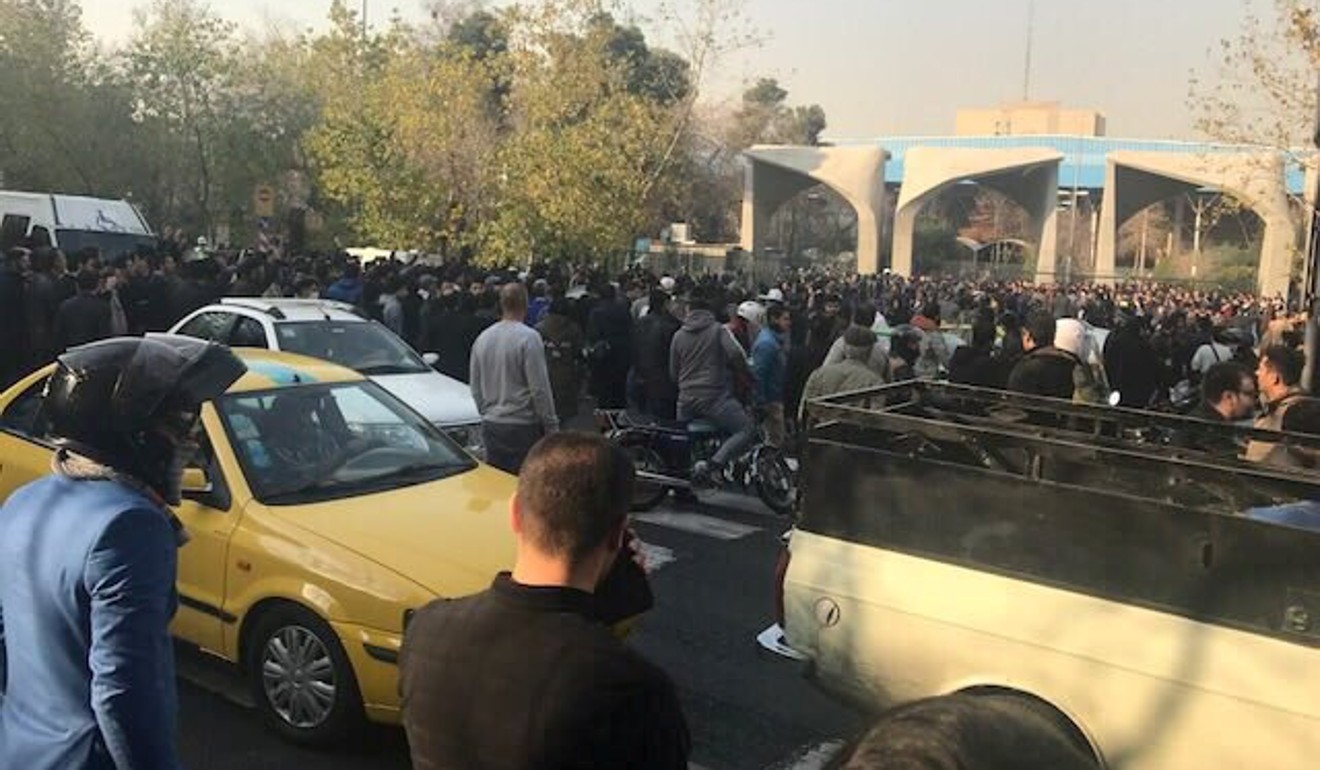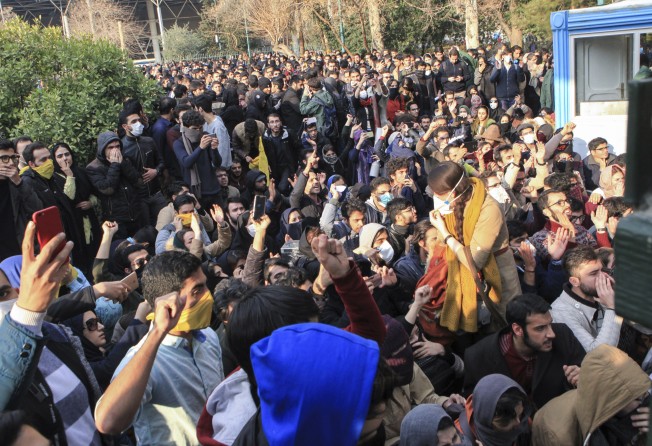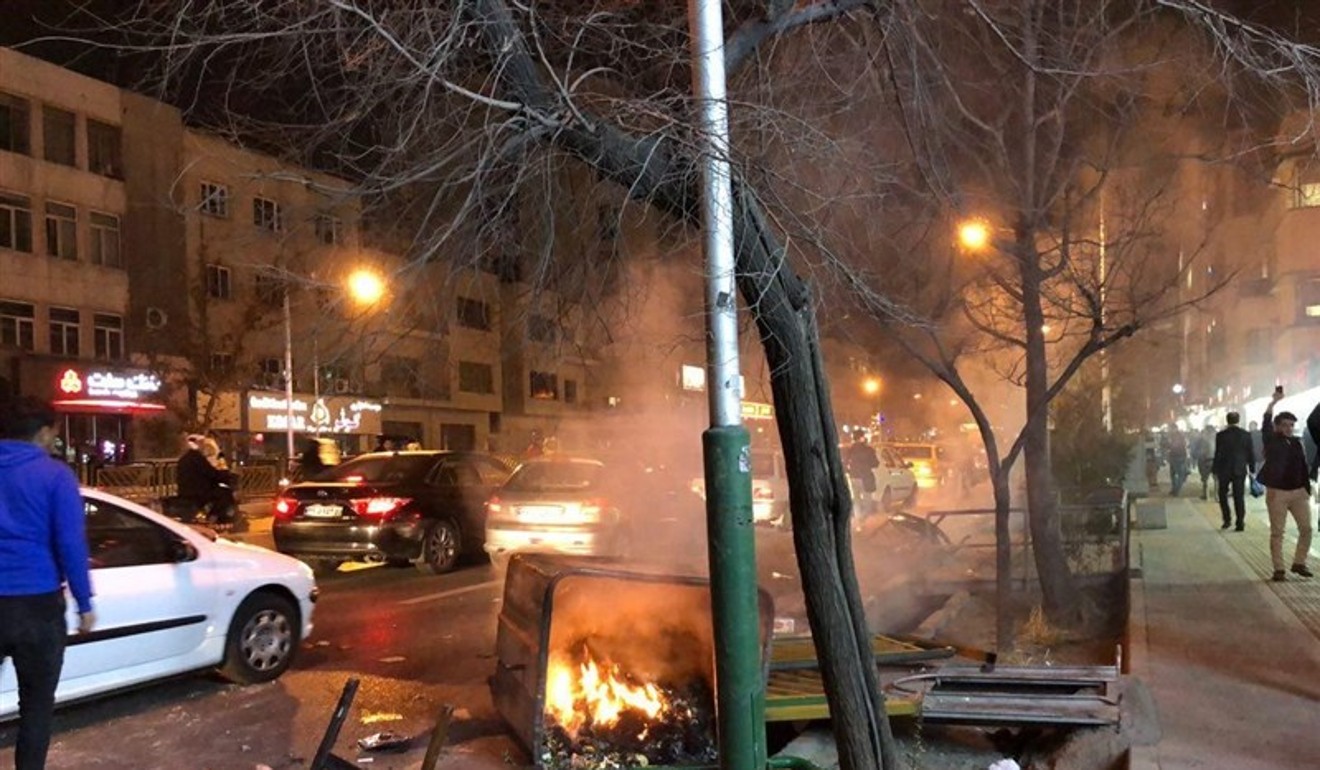
Iran blocks social media access as protests turn deadly
The wave of anti-government demonstrations, prompted in part by discontent over economic hardship and alleged corruption, are the most serious since months of unrest in 2009

Iran on Sunday blocked access to Instagram and a popular messaging app used by activists to organise and publicise the protests now roiling the Islamic Republic, as authorities said two demonstrators had been killed overnight in the first deaths attributed to the rallies.
The demonstrations, which began on Thursday over the economic woes plaguing Iran and continued on Sunday, appear to be the largest since protests following the country’s 2009 presidential election.
They were fanned in part by messages sent on the Telegram messaging app, which authorities blocked on Sunday along with the photo-sharing app Instagram, which is owned by Facebook.

Many in Iran are learning about the protests and sharing images of them through Telegram, a mobile phone messaging app popular among the country’s 80 million people. On Saturday, Telegram shut down one channel on the service over Iranian allegations it encouraged violence, something its moderator denied.
On Sunday, Telegram CEO Pavel Durov wrote on Twitter that authorities had blocked access to the app.
“Iranian authorities are blocking access to Telegram for the majority of Iranians after our public refusal to shut down … peacefully protesting channels,” he wrote.
Watch: Iranian protesters chant ‘down with dictator’
Iran’s state television news website, iribnews.ir, quoted an anonymous source saying that social media in Iran would be temporarily limited as a safety measure.
“With a decision by the Supreme National Security Council, activities of Telegram and Instagram are temporarily limited,” the report said, without elaborating.
Facebook did not immediately respond to a request for comment.
Meanwhile, authorities acknowledged the first fatalities in the protests in Doroud, a city some 325km southwest of Tehran in Iran’s western Lorestan province. Protesters had gathered for an unauthorised rally that lasted into the night on Saturday, said Habibollah Khojastepour, the security deputy of Lorestan’s governor. The two protesters were killed in clashes at the rally, he said.
“The gathering was to be ended peacefully, but due to the presence of the [agitators], unfortunately, this happened,” Khojastepour said.
He did not offer a cause of death for the two protesters, but said “no bullets were shot from police and security forces at the people”.
Videos circulating on social media late on Saturday appeared to show fallen protesters in Doroud as gunshots sounded in the background. Associated Press could not immediately verify the footage.
Thousands have taken to the streets of cities across Iran, beginning on Thursday in Mashhad, the country’s second-largest city and a holy site for Shiite pilgrims.

The protests in the Iranian capital, as well as President Donald Trump tweeting about them, raised the stakes. It also apparently forced state television to break its silence on Saturday, acknowledging it had not reported on the protests on orders from security officials.
Trump, whose travel bans blocked Iranians from getting US visas, again tweeted about the protests Sunday.
“The people are finally getting wise as to how their money and wealth is being stolen and squandered on terrorism. Looks like they will not take it any longer,” Trump wrote. “The USA is watching very closely for human rights violations!”
At least 50 protesters have been arrested since Thursday, authorities said Saturday. State television said some protesters chanted the name of the US-backed shah, who fled into exile just before Iran’s 1979 Islamic Revolution and later died.